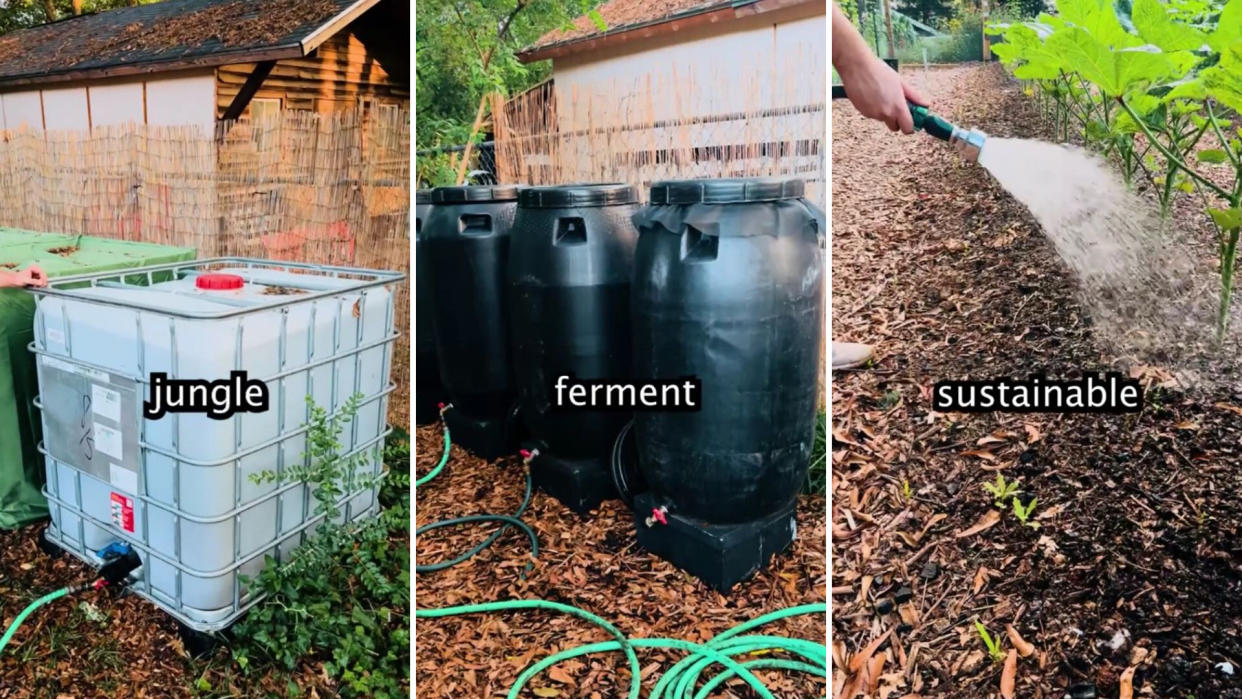Gardener shares a recipe for ‘jungle juice’ that will help your plants thrive: ‘That’s pretty smart’

Fertilizers provide plants with the nutrients they need to thrive, but those fertilizers can wreak havoc when they infiltrate waterways. For a more sustainable alternative, try making your own jungle juice. (No, not that kind of jungle juice.)
The scoop
The sustainability team Acorn Land Labs (@acorn_land_labs) shared a video of their “jungle juice.” Instead of rum and fruit punch, their jungle juice is packed with fermented plant matter to create a potent liquid fertilizer.
The video shows an array of large black barrels filled with water, leaves, and stems. “We ferment water with kudzu, comfrey, weeds, spider lilies, and organic banana peels. Any vibrant, leafy green works really well,” the voiceover says.
After letting this mixture ferment for 30 days, the Acorn Land Labs team dilutes the fertilizer to 25% jungle juice and 75% water. The jungle juice provides both water and fertilizer to the plants. “Now we have a more sustainable and affordable way of fertilizing and watering our plants,” the video says.
How it’s helping
By skipping store-bought fertilizer, you’re saving money and the environment. When fertilizers run off into waterways, their excess nutrients lead to algal blooms that threaten marine life. Natural fertilizers like this jungle juice provide your plants with the nutrients they need without posing a risk to the environment.
The jungle juice recipe also makes good use of yard waste. Comfrey is a common weed you’re likely already pulling from your garden, and kudzu is an invasive vine that should be removed as soon as it’s detected. Instead of sending these plants to the landfill, you can make use of them by incorporating them into your homemade fertilizer.
What everyone’s saying
Acorn Land Labs’ innovative homemade fertilizer gave viewers ideas about how to care for their own gardens. “Your channel is so amazing and always inspires me to do similar things,” one user wrote. “Keep it up!”
“I’m about to set this up to replace the synthetic stuff we have been using,” another shared.
A third user added, “That’s pretty smart.”
Join our free newsletter for easy tips to save more, waste less, and help yourself while helping the planet.


